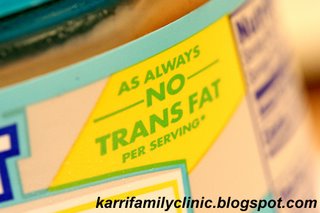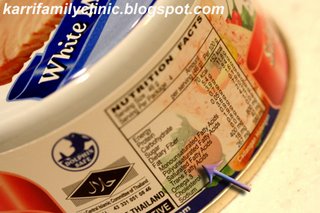
Trans Fats seem to be a hot topic nowadays, but after talking to some patients this morning, I found that actually a lot still don't know much about it. So let me just highlight a few points and link you to some articles which will give you more details.
Sorry, but I couldn't resist taking this picture of Trans-Cab which has nothing to do with Trans-Fats.

Years ago, when people started to use vegetable oils, everyone was so happy because vegetable oils contained polyunsaturated fats. These fats are liquid at room temperature and are better for you as compared to Saturated Fats that you find in animal fats like Butter. The thing is that it is difficult to spread a vegetable oil, so they developed a process called hydrogenation which turned the oil into a fat ie a semisolid at room temperature. Hooray!! Now they have a substitute for butter which can be used for making cookies and other pastries.
So after many years of believing that vegetable oils are better for you, some really smart scientist found out that the hydrogenation of vegetable oils produces trans fatty acids. Then they discovered that trans fatty acids are actually as bad for you as saturated fats!
Both trans fatty acids and saturated fats raise the bad cholesterol (LDL) and lower the good cholesterol (HDL) and by doing so increases the chances for your artery to get clogged up resulting in a heart attack or stroke.

So now some manufacturers are cashing in on the opportunity to highlight that their products contain no trans fatty acids. And quite rightly too. You as the consumer should look at the labels carefully and choose the right foods for the family.
In a nutshell, if you are buying any processed foods such as cookies, margarine, peanut butter or fried stuff such as potato chips (hydrogenation helps to prevent fats from going rancid and increases the shelf life of such products), then look at the label to see if there is any trans fats.

The WHO recommends that trans fats make up less then 1% of your total fat intake per day. This is roughly less than 2g of trans fats per day. When you eat a pack of pototo chips, it typically contains 3g of trans fats.
I promised to keep it short. So that's it from me. If you need more information please click Here and Here.

5 comments:
Hi Leslie,
Firstly, thanks for setting up this blog. It's really informative.
I sometimes see hydrogenated fats on the labels. Is hydrogenated fats the same as trans fats?
Cheers,
James
The hydrogenation process produces trans fats but not all hydrogenated fats are trans fats. I am not a food chemist, so I could be wrong. Perhaps some experts can explain this in more detail?
Hi,
Do you believe in blood type diet?
Is it true that if you follow the diet of your blood type, you can avoid weight gain because a blood type diet tells the types of food that caused you weight gain?
Hi Dr Leslie,
I understand that you are a foodie yourself and I have a question that I would like to seek your advise.
I am a prata fan. I eat prata for breakfast almost every monring.
Many people have said that pratas are not good for health and after doing some basic research, it would appear that the main problem with eating prata is the fat (usually ghee or margarine) they use in the dough and the cooking/frying process.
However, if we were to compare eating prata to some other food like curry puff and "you tiao", wouldn't prata be seen as a "healthier" alternative since the amount of oil used is much lesser than the 2 (assuming the oil used for cooking these foods are the same)?
Thank you for your kind attention.
It's like saying eating the lesser poison is better than eating the stronger poison right?
Eat everything in moderation.
Prata every morning is not good for you my friend.
Post a Comment